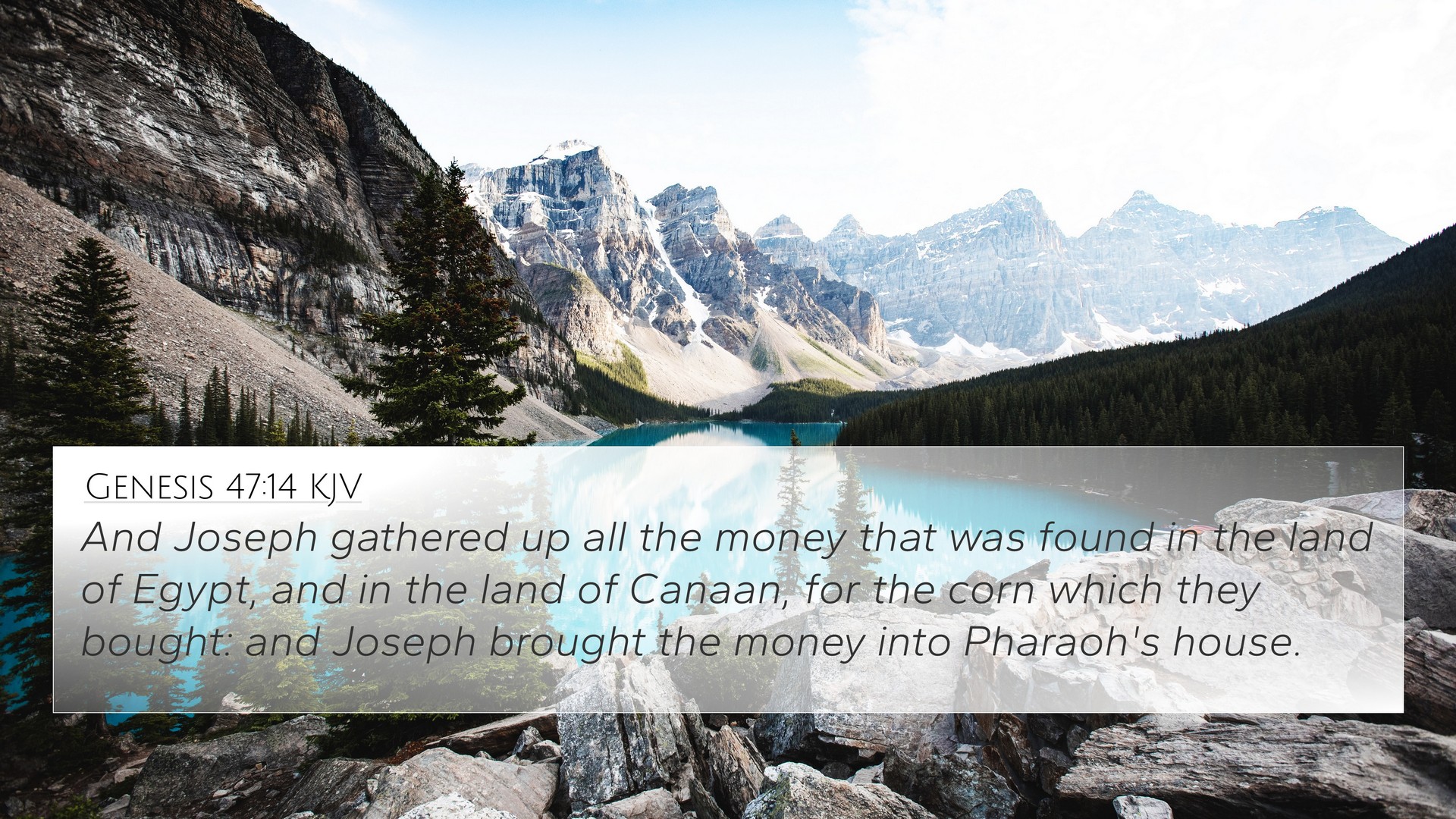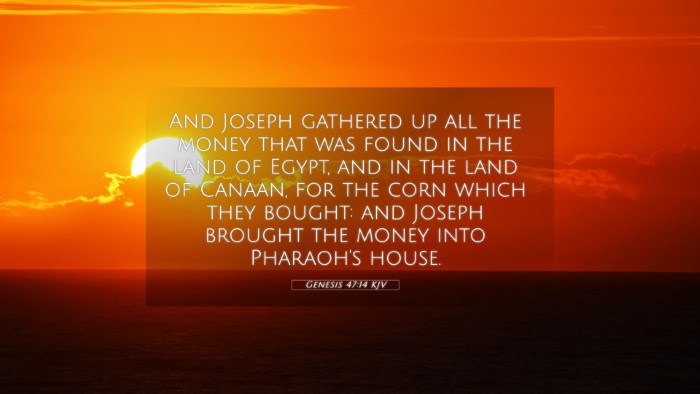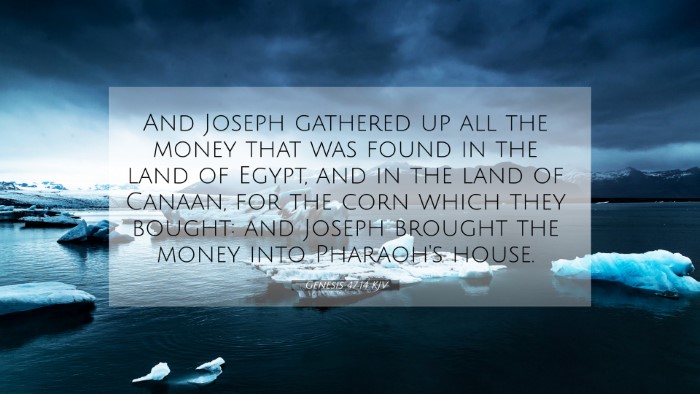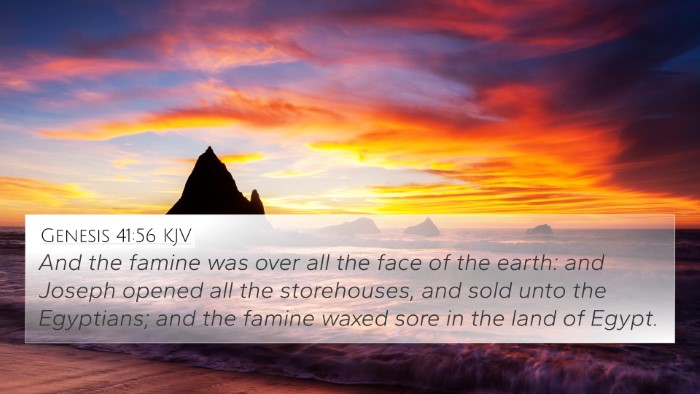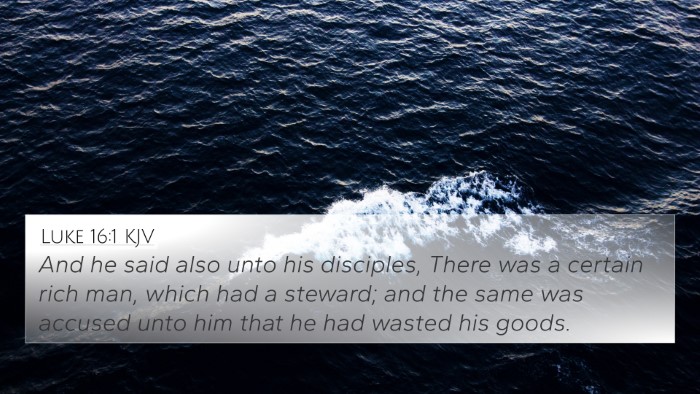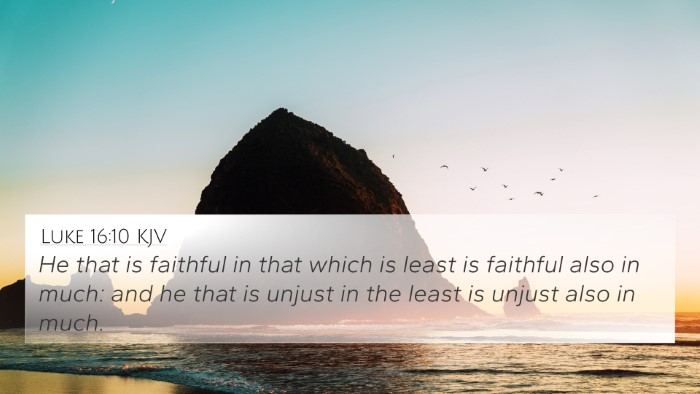Genesis 47:14 Overview
Genesis 47:14 states: "And Joseph gathered up all the money that was found in the land of Egypt, and in the land of Canaan, for the corn which they bought: and Joseph brought the money into Pharaoh's house." This verse occurs during a pivotal moment in Joseph's administrative responsibilities during the famine.
Key Themes and Meanings
This verse highlights several key themes and interpretations as drawn from various public domain commentaries:
-
Resource Management:
Joseph's role in accumulating the wealth of Egypt and Canaan demonstrates his skill in resource management. According to Matthew Henry's Commentary, this illustrates God's providence in providing for His people during times of need.
-
Divine Providence:
Joseph's actions reveal God’s hand in the events of history. As Albert Barnes notes, it is not merely Joseph's acumen that drives these developments, but rather the greater plan of God to sustain His people through adversity.
-
Economic Strategy:
Adam Clarke emphasizes the economic implications of Joseph's strategies, indicating that he was not just preserving life but also structuring the economic foundation of the nation to benefit Pharaoh, thus establishing a new economic order.
-
Leadership and Authority:
Through this verse, we see Joseph’s authority being solidified as he becomes the main steward of Pharaoh's wealth. Henry discusses how this reinforces Joseph's status as both a wise leader and a servant of God.
-
Wealth Redistribution:
The collection of money from the people illustrates not only Joseph’s governance but also the redistribution of wealth in a time of crisis. This aspect raises discussions on economic ethics found in both Henry and Clarke's writings.
-
Link to Other Scriptures:
This verse has substantial theological implications when cross-referenced with other biblical texts, further enabling a deeper understanding of its context.
Bible Cross-References
For a comprehensive understanding, we highlight several Bible verses that relate to Genesis 47:14:
- Genesis 41:47-49: Joseph’s initial management of grain during the years of plenty.
- Genesis 41:55: The resultant famine that leads to the collection of resources.
- Genesis 42:1-3: The actions of Jacob and his sons as they seek grain in Egypt.
- Psalm 37:25: The theme of God providing for the faithful during difficult times.
- Proverbs 21:5: Wisdom in planning and resource management in times of crisis.
- Matthew 14:19: Jesus’ miracle of feeding the 5000, illustrating divine provision.
- Luke 12:15: The teachings of Jesus on the dangers of greed and wealth accumulation.
Insights from Commentaries
As we analyze the verse further, the following insights can be drawn:
-
Joseph's Vision and Planning:
Joseph's foresight in grain storage and resource management is reminiscent of the broader biblical principle of stewardship, highlighting the importance of planning for future needs.
-
Theological Implications:
This passage showcases a perspective on the sovereignty of God in utilizing individuals to fulfill divine plans, as elaborated by each of the commentators.
-
Cultural Context:
An understanding of the Egyptian economy and societal norms during famine provides context to Joseph’s actions, drawing parallels to concepts of governance and resource sharing found throughout scriptures.
Comparative Analysis
This verse can serve as a connecting point for various themes found throughout the Bible, especially when examining the dynamics of power, wealth, and divine intervention. When conducting a comparative analysis, the following tools and methods can be beneficial:
- Cross-Reference Bible Study: Utilize Bible concordances and guide resources to explore interconnected themes and narratives.
- Identifying Themes: Look for trends in leadership styles among biblical figures, akin to Joseph's stewardship.
- Understanding Economic Principles: Cross-reference Joseph's strategies with modern biblical applications centered around wealth and resource management.
Conclusion
Genesis 47:14 holds significant meaning within its historical and narrative context. By engaging with various public domain commentaries and exploring cross-references, one can glean deeper insights into the complexities of biblical economics, leadership, and divine providence. Such study encourages believers to reflect upon how God orchestrates events for the greater good, offering lessons that resonate throughout scripture.
